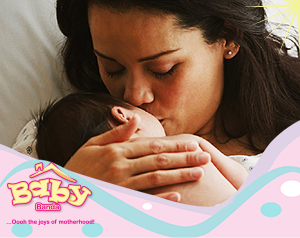Premature babies require special care.
Kangaroo Mother care is an effective way to meet a premature baby’s needs which include warmth, frequent breastfeeding, protection from infection, stimulation, safety and love.
Below are some of the ways that will help you take care of your preterm baby:
Feeding your baby
Breast milk is the best nutrition for any baby. Depending on your baby’s health, initiate breastfeeding as soon as possible. You can also express your milk for your baby to be fed if they are in the incubator. Discuss with your doctor on whether and how you can breastfeed your baby or whether an additional feed (bottle or enrichment of breast milk) is needed. Drinking from his or her mother’s breast gives a “preemie” that particularly important warmth and security.
Kangaroo Mother Care (KMC)
Kangaroo Mother Care (KMC) is a great way to save preterm and low birth weight babies in high and low-income settings alike. This form of care, initiated in hospitals, involves teaching mothers and other caregivers how to keep newborns warm through continuous skin-to-skin contact on the mother’s chest. KMC has been shown:
- to prevent infections
- promote breastfeeding
- regulate the baby’s temperature, breathing, and brain activity
- encourages mother and baby bonding.
Positioning your baby
Positioning basically means gently placing your baby in the curled up position which imitates the position in the womb. This provides the right type of support and creates a snug and secure feeling. Since this is usually done at the neo-natal unit, you can observe and ask the medical staff to teach you especially if the baby was born very early (25-32 weeks).
- The premature baby should be positioned as follows: arms and legs should be curled up, with knees and elbows tucked towards the middle of the body. The spine should be curved and the head should be tucked slightly forwards. It is important for premature babies to develop this curled posture because it is an important basis for their future physical development.
- Try to turn your baby’s head to a different side every time you put him/her down to sleep. This may help to prevent the head become flattened on one side.
- The time your baby spends playing on the tummy is a building block for progress towards crawling and walking. From the corrected age of about one month (that is, one month from your baby’s original due date), ‘tummy time’ should become an important position at playtime
- When it comes time for learning to move, avoid baby walkers as they encourage babies to walk on their toes whilst they are supported in a frame. This blocks the natural development of body control and balance, which are needed for crawling, sitting and walking. Put your baby on the floor to learn these skills as the walkers do not strengthen the muscles and may delay development.
Growth milestones
Premature birth can affect the way your child develops. Early intervention is important, so assessments from your healthcare team are crucial in ensuring that your baby gets the right care and therapies if needed. Early babies are given time to catch up. If your baby is born prematurely, his milestones will be assessed from the time of his due date, not from when he was actually born. By the age of two, his development will often even out with his peers, and you can use his actual birth date instead. In very premature babies, sometimes this is extended to three years of age.













